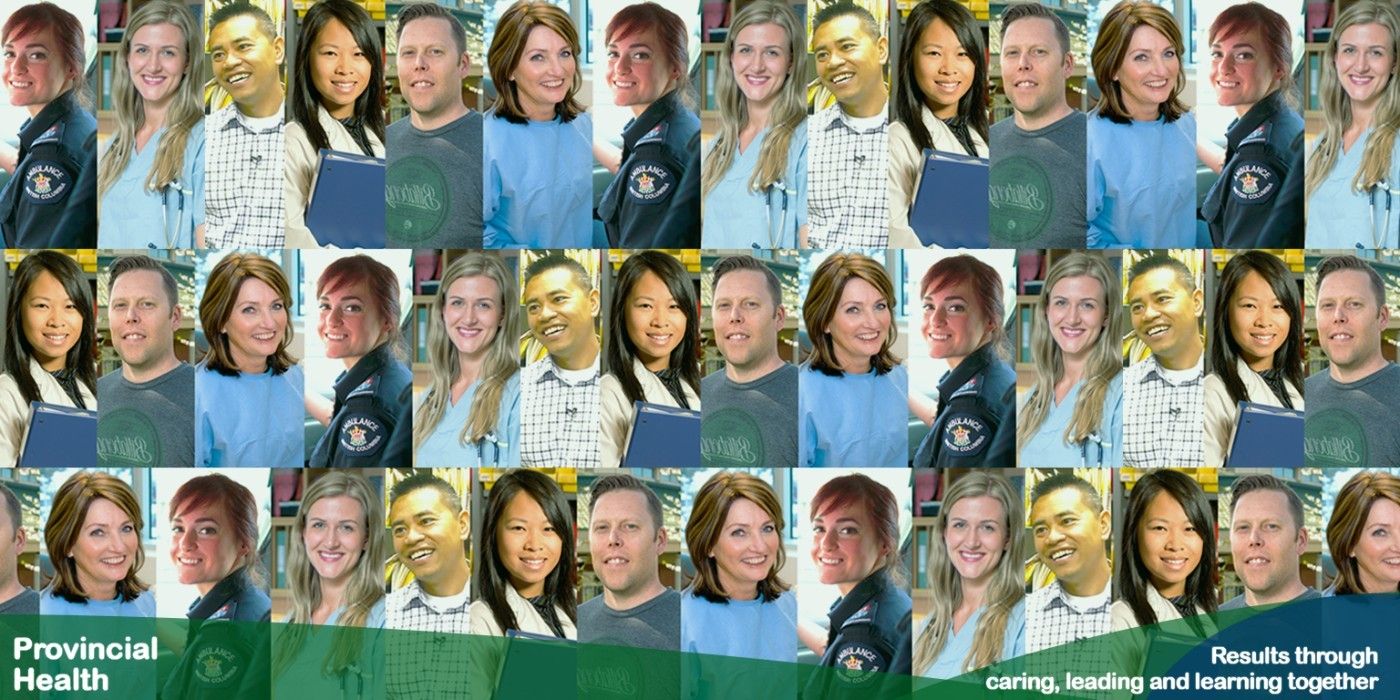Executive Director, Workplace Health & Safety
Posted 19 days ago
Job Description
Salary Range: $141,146 - $202,898/year. The starting salary for this position would be determined with consideration of the successful candidate's relevant education and experience, and would be in alignment with the provincial compensation reference plan. Salary will be prorated accordingly for part-time roles.
Executive Director, Workplace Health & Safety
People and Culture, Corporate Services
Hybrid Opportunity
You are an experienced occupational health professional with a penchant for organizational transformation, achieving results, and continuous learning. Colleagues know you for your strong collaborative leadership style, persuasive negotiation skills with ability to achieve consensus, genuine desire to listen to diverse perspectives, and ability to take plans from concept to implementation. You're equally invested in both health and safety, with a people-first perspective in building and achieving action plans. If you're looking for an incredible leadership opportunity, this role reaching across British Columbia may be the perfect "what's next" for your workplace health and safety career!
What you'll do
The Executive Director, Workplace Health & Safety reports to the Vice President, People and Culture and is a member of the senior leadership team. This role is accountable for the Workplace Safety & Prevention and Disability Management portfolios within People and Culture, which reach across the Provincial Health Services Authority's (PHSA) province-wide programs. The Executive Director guides the overall strategic leadership in the provision of Workplace Safety & Prevention and Disability Management functions, with responsibility for operations and strategic planning, and represents PHSA in internal and industry initiatives. High-level accountabilities include:
What you bring
Qualifications
Core Competencies
Skills & Knowledge
Executive Director, Workplace Health & Safety
People and Culture, Corporate Services
Hybrid Opportunity
You are an experienced occupational health professional with a penchant for organizational transformation, achieving results, and continuous learning. Colleagues know you for your strong collaborative leadership style, persuasive negotiation skills with ability to achieve consensus, genuine desire to listen to diverse perspectives, and ability to take plans from concept to implementation. You're equally invested in both health and safety, with a people-first perspective in building and achieving action plans. If you're looking for an incredible leadership opportunity, this role reaching across British Columbia may be the perfect "what's next" for your workplace health and safety career!
What you'll do
The Executive Director, Workplace Health & Safety reports to the Vice President, People and Culture and is a member of the senior leadership team. This role is accountable for the Workplace Safety & Prevention and Disability Management portfolios within People and Culture, which reach across the Provincial Health Services Authority's (PHSA) province-wide programs. The Executive Director guides the overall strategic leadership in the provision of Workplace Safety & Prevention and Disability Management functions, with responsibility for operations and strategic planning, and represents PHSA in internal and industry initiatives. High-level accountabilities include:
- Actively guides, contributes and works in partnership with senior leadership team colleagues in the overall strategic leadership and the planning, development and management of the department strategy, goals and objectives for PHSA and its agencies, services and divisions. Makes decisions that have broad implications and complexity, ensures consistency with PHSA's overall strategic plan, alignment with the MoH priorities, and works within the boundaries of government legislation and policies as well as provincial standards and agreements.
- Provides strategic leadership and expertise and develops long and short-term plans; aligns portfolio goals and objectives to the overall strategic direction of HR within PHSA.
- Collaborates with leadership to ensure cross functional HR network teams are integrated and collaborative in their approach to providing consistent and qualitative service to clients.
- Drives results through integrating practice and approaches across PHSA, building on practice and extending it to all, exploring opportunities and leveraging resources, and cultivating innovation including the development of standard operating procedures and systems/processes.
- Leads staff in growing partnerships with clients and facilitating consensus to plan and deliver on specific programs and services. Negotiates both internally and externally to PHSA on a formal basis, enters into contracts and letters of understanding on behalf of PHSA, and makes decisions involving complex and diverse issues.
- Oversees the portfolio teams to successfully provide expert counsel, high quality services, act as a business partner, and to embody and support PHSA values. Provides leadership to staff through coaching, guiding and modelling key behaviours/strategies, encouraging dialogue and providing guidance and advice to facilitate resolutions to work issues.
- Develops and monitors an annual budget includes operating, project/temporary funding, and budgets; monitors overall portfolio budget performance, plans and adjusts operations and/or staffing to meet projections and annual targets, and approves expenditures and preparing summary reports.
What you bring
Qualifications
- A level of education, training and experience equivalent to a master's degree in occupational health, human resources, business administration or a related discipline.
- 10+ years of progressively more senior experience with a minimum of 5 years at a leadership level.
- Demonstrated knowledge of the historic and ongoing impacts of settler colonialism on Indigenous Peoples in social and health contexts, including supported by significant knowledge of Indigenous-specific mandates, including clear understanding of and commitment to eradicate Indigenous-specific racism and discrimination and embed Indigenous Cultural Safety and Humility. Demonstrated knowledge of the historic and ongoing impacts of settler colonialism and systemic racism on Indigenous Peoples within social and health contexts, underpinned by significant expertise in Indigenous-specific mandates. This includes a clear understanding of and commitment to eradicating Indigenous-specific racism and discrimination. Additionally, it involves embedding Indigenous Cultural Safety and Humility, and an advanced expertise and unwavering dedication to engaging with diversity, centering equity, and advancing inclusion (DEI).
- Demonstrated knowledge and understanding of legislative obligations and provincial commitments within Workplace Health and Safety contexts found in the foundational documents including Truth & Reconciliation Commission's Calls to Action (2015), In Plain Sight (2020), BC's Declaration on the Rights of Indigenous Peoples Act (2019), United Nations Declaration on the Rights of Indigenous Peoples (UNDRIP), Reclaiming Power and Place Missing and Murdered Indigenous Women & Girls Calls for Justice (2019), the Declaration Act Action Plan and Remembering Keegan: A First Nations Case Study, Anti-Racism Data Act, BC Human Rights Code - and how they intersect across the health care system.
Core Competencies
- Brings an understanding of the Indigenous specific racism and the broader systemic racism that exists in the colonial health care structure, and has demonstrated leadership in breaking down barriers and ensuring an environment of belonging and Indigenous Cultural Safety. Demonstrates action-oriented practices addressing Indigenous-specific racism and dismantling systems of oppression, as well as confronting/addressing broader issues of racism and discrimination. Exhibits strong DEI and anti-racism competencies/skills to lead by example fostering a culture of continuous learning, equity, inclusion and belonging.
- Knowledge of social, economic, political and historical realities of settler colonialism on Indigenous Peoples and familiarity with addressing Indigenous-specific anti-racism, anti-racism and Indigenous Cultural Safety and foundational documents and legislative commitments (the Declaration Act, the Declaration Action Plan, TRC, IPS, Remembering Keegan, etc.).
Skills & Knowledge
- Leadership capabilities in the areas of leading self, engaging others, driving change, achieving results, developing coalitions and system transformation; entrepreneurial-style leadership focused on continuous improvement and strategic planning with a global perspective.
- Comprehensive knowledge of human resources processes and applicable legislation, relevant collective agreements and principles of union/management relationships.
- Excellent communication skills including the ability to facilitate, negotiate, and persuade others; with the ability to make formal presentations.
- Demonstrated analytical skills and the ability to think critically, conceptualize issues, and systemically address them; ability to influence change and decision-making at a senior level.
- Ability to approve, develop and oversee an annual budget.
- Demonstrated deep understanding of their personal learning journey related to Indigenous-specific racism and dismantling systems of oppression, as well as addressing racism more broadly. Able to articulate and share this journey to motivate and inspire others.
- Demonstrated knowledge of the social, economic, political realities of settler-colonialism and impacts on Indigenous peoples in social and health contexts as well as knowledge and understanding of, and commitment to upholding legislative obligations and provincial commitments in the foundational documents: Truth & Reconciliation Commission's Calls to Action (2015), In Plain Sight (2020), BC's Declaration on the Rights of Indigenous Peoples Act (2019), United Nations Declaration on the Rights of Indigenous Peoples (UNDRIP), Reclaiming Power and Place Missing and Murdered Indigenous Women & Girls Calls for Justice (2019), the Declaration Act Action Plan, Remembering Keegan: A First Nations Case Study, and the Distinctions Based Approach.
About PHSA
Industry
Government Health CareCompany Size
10,000+ employees
Application closing date is 2024-10-30
Current Openings
-
Full Time
-
Full Time
-
Full Time
-
Director, Indigenous Health Program - BC Children's and Women's Hospital & Health Centre
BC Childrens Hospital
Full Time
-
Full Time
-
Director, Projects
PHSA
Full Time
-
Director, Projects
PHSA
Full Time
-
Full Time
-
Full Time
-
Full Time














 Full episodes twice per month
Full episodes twice per month